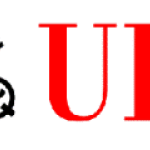- Industria: Financial services
- Number of terms: 25840
- Number of blossaries: 0
- Company Profile:
UBS AG, a financial services firm, provides wealth management, asset management, and investment banking services to private, corporate, and institutional clients worldwide.
Payment order written by one person (the drawer) directing another person (the drawee) to pay a certain amount of money at a specified future date to a third party. It designates a named beneficiary but is transferable by endorsement. Discount credit when sold to a bank. See also promissory note, acceptance, draft.
Industry:Banking
An order to or from the drawee (usually a bank), cheque holder or another named person, that is payable on demand and linked to specific formalities, to pay a specified sum of money. Unlike a bill of exchange, a cheque is not a means of credit but a means of cashless payment. In Switzerland, cheques may be drawn only on a bank or the Post Office where the cheque issuer has a credit balance available to cover cheque transactions. Cheques made out to the bearer can be transferred to others simply by handing them over. Crossed cheques are limited in how they can be used. See also traveller's cheque, correspondence cheque, crossed cheque, blank cheque, banker's draft.
Industry:Banking
Banknotes and coins circulating in the private sector of the economy as well as giro (clearing) balances maintained with the central bank by commerce, industry and the banks. Another name is central bank money supply.
Industry:Banking
A share with preference rights, i.e. which entitles the holder to a certain preferential treatment, primarily with regard to the distribution of income (preferred dividends), the distribution of assets on liquidation and exercising subscription rights. Opposite: deferred share. See also cumulative preference share.
Industry:Banking
Bank which, in addition to the central paying agency, has been given permission by public authorities or agencies to process decentralized payment transfers.
Industry:Banking
Also: subsidiary company. Legally independent company that is controlled by another company, its parent company. The subsidiary may have been founded by the parent company or acquired by it, and forms part of a corporate group.
Industry:Banking
The European Monetary System (EMS) was replaced following the decision taken by the European Council on 16 June 1997 to set up an Exchange Rate Mechanism (ERM II) in the third stage of the Economic and Monetary Union. The aim of this Exchange Rate Mechanism is to ensure stability and solidarity in terms of exchange rates between those countries that have introduced the euro as their currency and those that have not. Primary objective: to prevent excessively large exchange-rate fluctuations between the EUR and the currencies of non-participating nations.
Industry:Banking
Totality of measures taken by a central bank to control the money supply, interest rates and the exchange rate against foreign currencies.
Industry:Banking
Also: stock, equity. A form of security representing a portion of the nominal capital of a company and giving the owner the right to vote at General Meetings and to elect directors as well as the right to information and to exercise control. Shares further entitle the holder to a portion of the company's profits and to a proportional share of any capital increase or liquidation proceeds.
Industry:Banking
